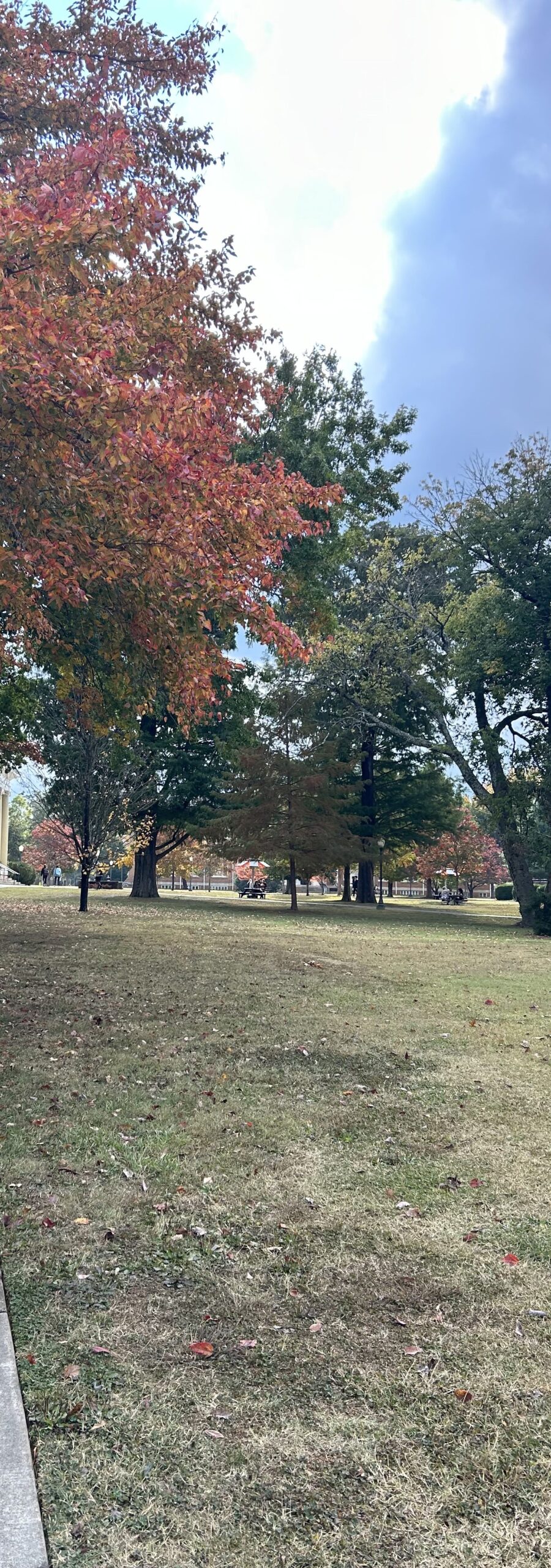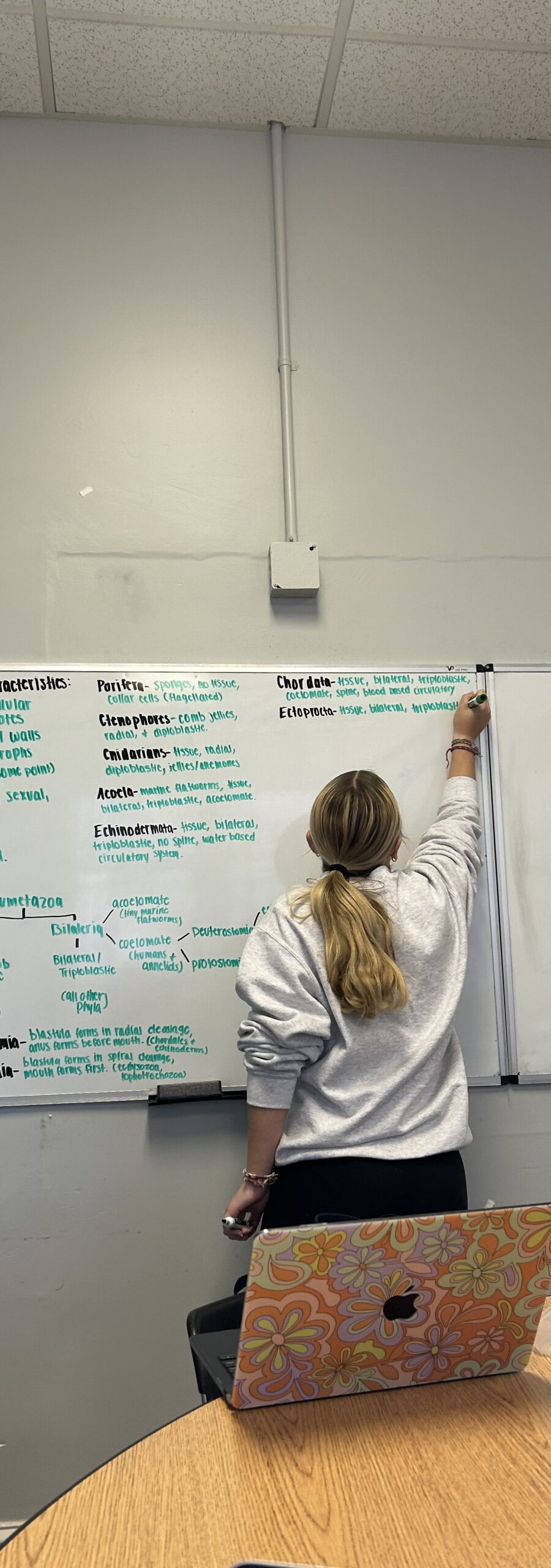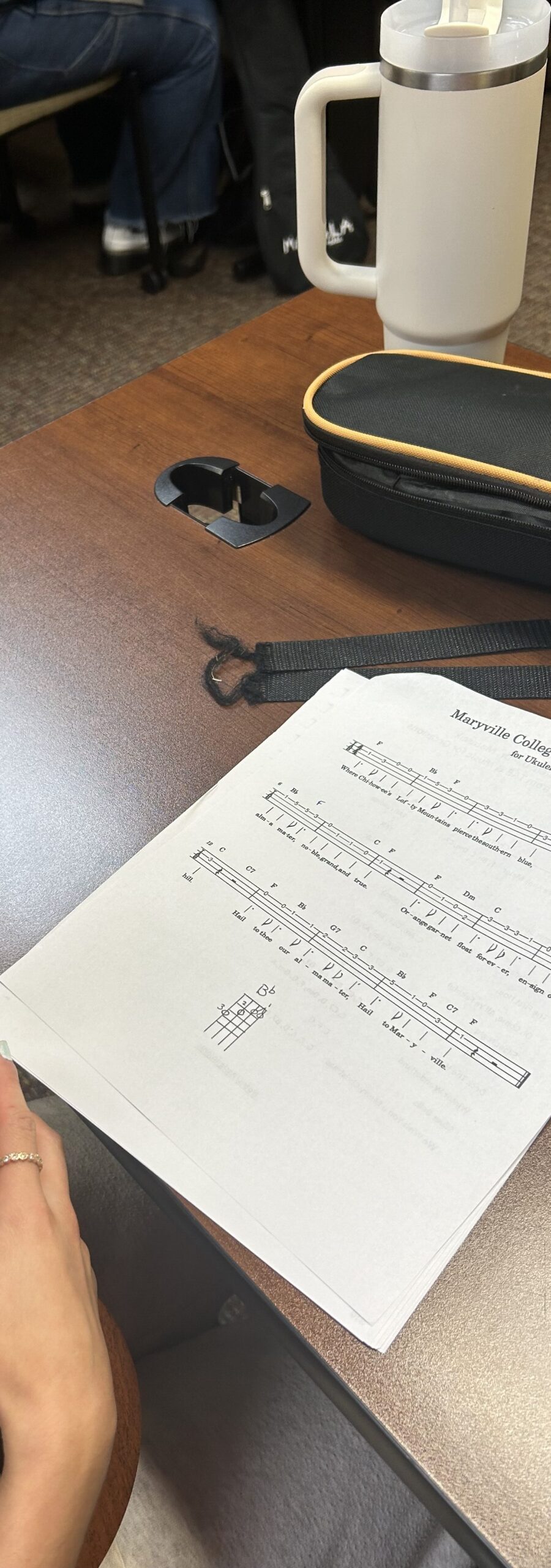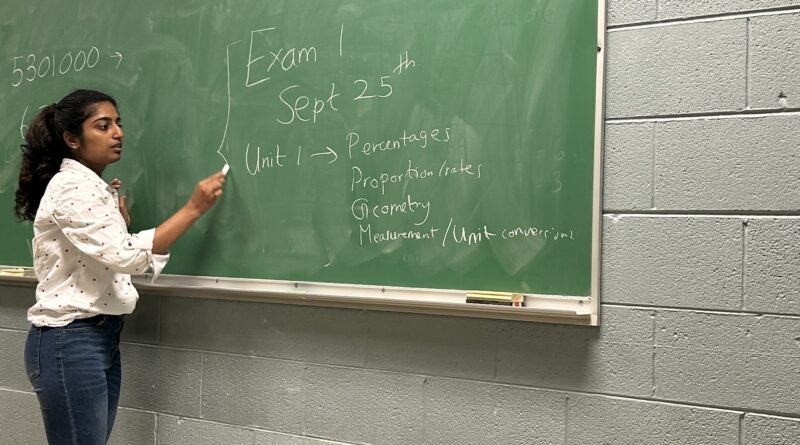The true value of a liberal arts education
When someone decides to pursue a higher education, they must also decide what kind of institution they would like to attend.
From research universities to arts-oriented schools, many institutions offer specialized programs of study. Others — like the liberal arts approach offered by Maryville College — focus on communication, critical thinking, and the overall development of well-rounded skills.
Maryville College is a liberal arts and church-related institution located in Maryville, Tennessee which is right between Knoxville and The Great Smoky Mountains National Park. This is one of the world’s most biodiverse regions, providing opportunities for various scientific fields of study as well as sightseeing and tourist attractions. The college was founded in 1819 by Presbyterian minister Isaac L. Anderson. Anderson served as the president of the college for almost 40 years.
According to the Maryville College mission statement, MC’s purpose is to “[prepare] students for lives of citizenship and leadership as we challenge each one to search for truth, grow in wisdom, work for justice, and dedicate a life of creativity and service to the peoples of the world.” The school also asks all students to commit to a covenant of scholarship, respect and integrity while on campus.

Dr. Dan Klingensmith is the current vice president and dean of Maryville College. He attended Harvard University for his undergraduate degree and went to graduate school at the University of Chicago. He graduated with his Ph. D. in History in 1998 and began working for Maryville College later that year. Klingensmith calls himself “a very strong believer in liberal arts education”.
Klingensmith additionally believes in the importance of Maryville’s mission statement and says that he, as an administrator, takes it very seriously. He was employed at the college when the statement was written and stated that it gives Maryville College an identity, helping to keep the institution on track. He also pointed out how the school covenant of “scholarship, respect and integrity” is heavily interlinked with the school’s mission.
“When the pandemic started and we had to reinvent how this college functioned, it was so helpful to say ‘these are our principles; let’s not get too far away from them,’” Klingensmith added. “We had to think, ‘What things are important to us?’, and I remember a lot of conversations got back to the mission statement and the covenant … it’s when things are in crisis you really want to have a sense of who you are and what you are trying to do.”
When asked about the importance of the liberal arts as a whole, Klingensmith said he feels that the liberal arts are good for helping someone come to an understanding of what their principles are without demonizing other people, which he adds is incredibly important in such a politically polarized world. In fact, a lot of people mistakenly associate the use of the word liberal with politics, when in fact the use of this word comes from the Latin word “libre,” which means free. Klingensmith goes as far as to call the liberal arts “the art of being a free person.”
“Part of being a free person is to have choices, and we are trying to educate people to preserve their choices as long as possible,” Klingensmith added. “Core skills like communication, writing … and critical thinking, intercultural communication. All those things are skills that are going to be broadly transferable.”
Klingensmith went on to explain that an education must prepare students for jobs that they don’t yet know they want, or even jobs that don’t yet exist. As society advances, more and more jobs are becoming automated, which will lead to the creation of new roles to keep up with those developments.
“We must train people for the things computers and algorithms can’t do, and that’s dealing with the unexpected,” he said. “Liberal arts and the kind of flexibility of learning is really good for that.”
/
Lauren Huffstetler (‘26) is one example of a student who upholds Maryville’s foundational values while in pursuit of a well-rounded education. Huffstetler is a triple major who is pursuing degrees in Outdoor Studies & Tourism, Hospitality & Regional Identity and Design. She is the online editor for the Highland Echo, Maryville’s student-run newspaper, and the founder of Maryville Women Outside. This club began its events this spring.
Huffstetler grew up in Maryville, Tennessee, and never considered attending Maryville College until she was in high school. While she was always aware of the “beautiful campus,” she said that through taking some dual enrollment classes, she saw how special the academic side of Maryville College is. When it was time for her to submit her college applications, Maryville was the only school she applied to. She is a McGill Fellow, as well as a Mountain Challenge Fellow and a legacy student.
“I think that Maryville College is quite generous with the amount of scholarships they give out, because 100% of students receive some sort of financial aid,” Huffstetler said. “That is a really great starting point to help students decide where they want to go.”
When it comes to financial aid, Dr. Alayne Bowman has a lot of insight. She is the vice president for Admissions and Financial Aid at MC and has been working in this position for over five years and for the college since 2004. Bowman was a first-generation college student who attended a large public university for her undergraduate degree. She has since gotten her master’s in educational leadership and her doctorate in higher education.
Bowman says she was originally unaware of how funding worked at private institutions and thought she would be paying that “sticker price”. Because of this, she missed out on attending a liberal arts institution. She says that working at a liberal arts institution has shown her the value of having a well-rounded experience versus just focusing on classes in one’s major. Additionally, Bowman believes that taking out student loans to pursue a liberal arts education would be worth it. She even went so far as to call it “an investment in yourself,” stating that a good education is something that can never be taken away.
“Our scholarships are pretty sizable to be able to offer that public school price for a private education. Along with the scholarships, depending on students’ individual financial needs, they also could qualify for the MC grant, which is a need-based grant that also does not have to be paid back. So, the financial aid packages are very generous to be able to compete with public schools,” she said. “When we are comparing prices to [other institutions] we are comparing loans in that [number] as well. So, it’s [still] comparable to what you would be paying [at a public university].”
When it comes to the value of a liberal arts education itself, she believes that the ability to speak on various topics, having an understanding of different disciplines, and transferable team building and communication skills are some of the most important pieces of a college education.

“The job field is rapidly changing, so what you are studying for right this second might not even be available in a decade. It can change so fast,” She said. “You just need to be adaptable and prepared to get comfortable with being uncomfortable.”
Another supporter of the liberal arts education is Dr. Bryan Coker. He is the president of Maryville College, and has been working for the college since 2020. Coker is a firm believer in the liberal arts, as he and his wife are both liberal arts college graduates. He also has two children who are currently attending liberal arts institutions.
Additionally, when asked what part of a liberal arts education he believes to be most important, Coker pointed to the exposure to a variety of subjects as opposed to having a more narrow academic focus. This exposure is how many students discover potential careers, but no matter what, students are gaining beneficial and timeless skills.
“We don’t yet know the jobs and careers of the future,” he added. “When I was in college, there was no such thing as social media, so there obviously weren’t jobs for social media coordinators and directors. The future will bring a multitude of jobs and careers about which we currently have no knowledge; however, with the timeless skills from a liberal arts education, you’ll be prepared for any job or career.”
Robin Brown Cochran (‘05) studied health and physical education with K-12 teacher licensure at Maryville College. She transferred to Maryville her junior year after two years at the University of Tennessee, where she had yet to declare a major. After trying out some public health courses and disliking them, she decided she wanted to be a physical education teacher, a career for which the University of Tennessee offered no major. She said Maryville had exactly what she needed with much smaller classes and the major she was looking for. After graduation, she taught physical education for roughly 10 years. Cochran later went on to grad school for leadership and currently works as the assistant principal for Omaha Christian Academy in Omaha, Nebraska.
“If I was going to brag on anything about Maryville College, it would be the education program and the teacher prep education that I got there,” she said. “The P.E. program was really great, and the professors there really helped me from that perspective … but then the [general] education part of it is just second to none, really.”
Cochran specifically mentioned Dr. Alesia Orren, who has been working as a professor of elementary education at Maryville since 2000, whom she describes as “one of my favorite teachers there.” Cochran said that after her time at Maryville, she felt “very prepared, confident, and comfortable” when she took her first job in education, due to her time spent student teaching.
“I grew up in Maryville, so I was already pretty connected,” she said. “But I didn’t do my student teaching in Maryville City Schools where I graduated from. I did my student teaching in [other parts] of Blount County, and that was really good. It forced me to branch out and helped me get to know other people outside of my community.
“I [also had] a lot of opportunities because I had a lot of personalized attention. My professors could really focus on and get to know me. So when they were placing me for my student teaching, I feel like they took that into consideration. That was really nice.”

Lillian Peterson is a first-year student at Maryville majoring in Hospitality, with plans to become a wedding and event planner. She is a McGill Fellow and part of the women’s golf team. Peterson attended a small private high school in Knoxville, Tennessee, and enjoyed being part of a small community. So, when it came to picking a college to attend, Maryville College was her top choice. She has even gone as far as to say she could not see herself going anywhere else.
“Having a personalized education is one of the things that drew me most to Maryville College,” she said. “The professors at Maryville College do the most to show that they care and notice every student in their classroom. One of my classes last semester had seven students in it, and we became such a close group. Having professors that inspire and pour into you every day, fosters learning and motivates students to do their best work.”
While it may be difficult to see the value of a liberal arts education in the moment, graduates of those institutions often find that the foundation laid through the work there sets them up for success in the future — both financial and personal, Coker added.
“I believe there’s no better education than the liberal arts, when it comes to preparing you for a variety of jobs and careers, as well as for an uncertain future,” Coker said. “The liberal arts offer timeless and valuable skills to students, such as complex problem solving, navigating ambiguity, verbal/written communication, critical thinking, etc.”

